|
STAFF AND CONSULTANTS
Jan
Dietrick, Director
Rex
Meach, Administrative and Field Coordinator Everett J. Dietrick, Chief
Entomologist
Stefan
Long , Project
Leader David
Loring, Thailand Project Leader
Ron Whitehurst, Urban Projects Leader
BOARD OF DIRECTORS
Kate
Burroughs, Entomologist and Owner/Manager, Harmony Farm Supply
Gary Colliver,
Biological Planner
David Loring,
Pest Management Consultant
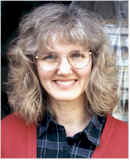 jan @dietrick.org jan @dietrick.org
Jan founded the Dietrick Institute to expand training activities that she and her
father had been doing through Rincon-Vitova Insectaries, Inc. Rincon-Vitova produces
and markets beneficial organisms, but success for its customers requires understanding and
knowledge about naturally-occurring biological control of pests. She wants to serve
the needs of ecologically minded farm families.
"Farmers have approached me at meetings and call the insectary wanting to mail
order predators, but they did not know what they really need and how to create an
environment where biological control can work. Often they had been through some
challenging event--a visit to a dead estuary, personal illness, child or neighbor with
leukemia, questioning from older or younger family members. They didn't know how to manage
without toxic pesticides. They just stopped. They didn't want to contribute to pollution
and health risks anymore. It's not easy to switch. There are many farmers with
an abundance of courage and willpower; they need access to knowledge and training like
what we try to provide."
Back to Top
Rex Meach, Administrative and Field Coordinator
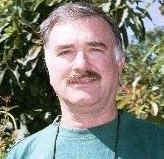
Rex studied botany, with an emphasis in plant ecology, at the University of California
at Santa Barbara. Instead of continuing his graduate studies following military service,
he went on to a 19 year career with the Mayo Clinic in laboratory medicine. But he never
lost interest in ecology and the special thought processes it engenders. His long-time
interest was fulfilled when he joined Rincon-Vitova Insectaries, Inc. overseeing shipping
and eventually playing a key role in its operations. Once the Dietrick Institute was
established his administrative ability found a new and even more challenging arena and he
found ample opportunity to satisfy his lifelong interest in ecology.
"During my student days in plant ecology, we concentrated almost exclusively on
natural ecosystems. In general, insect damage is barely noticeable in native plant
communities, with the exception of some accidentally introduced forest pests. This is in
marked contrast with the insect explosions we routinely suffer in agroecosystems. The
obvious question is can we manage farms so the self-regulating mechanisms found in natural
communities suppress crop pests? While working with Deke, I have been fascinated to watch
these protective effects begin to function almost automatically when disruptive synthetic
inputs are curtailed. With simple changes to the farm ecosystem, we can often tip the game
even more decisively in favor of the crop. When you see these things happen, it’s
easy to develop a crusader’s zeal for biological control. For me, watching insect
battles has become a major preoccupation."
Back to Top
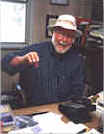 1922 - 2008 1922 - 2008
Deke, our insect ecology guru, was attracted to living insects from childhood. His
interest found encouragement in every phase of his life. As a student of Professor
Harry Smith at the University of California at Berkeley, he became a member of the cadre
of biological control entomologists solving pest problems for California agriculture
before and during the first decades of the pesticide era. Deke left the University
of California in 1959 to work with friends founding what became Rincon-Vitova Insectaries,
Inc., the first free-enterprise company to produce and sell beneficial insects for pest
control. His continuous leadership in development of products and markets pioneered the
biocontrol industry. The work of people like Lester Brown keep Deke motivated to
make a difference. See http://www.worldwatch.org/
.
"You can't judge the success or failure of biological control by looking only at
percent parasitism. The interactions between the pests and all the various natural enemies
is so complex. We need to look at the whole ecosystem around the pest to find out what is
really going on. There are so many pests that we have created ourselves. They weren't
pests before we started spraying hard pesticides and they would go away if we stopped
spraying now. Hundreds of insects and mites are now resistant to pesticides and the
number that are resistant to all pesticides keeps growing longer. We need biological
control more than ever, but the knowledge of the insects, the skills and the practical
experience are becoming lost for lack of funding. The Institute supports young people to
get practical ecologically based pest management experience they aren't getting in school
or on the job."
Back to Top
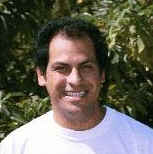
Stefan earned a Master of Science degree in entomology from Cornell
University and ten years of work experience in veterinary entomology focusing on
biological control of flies with the New York State Agriculture Cooperative Extension
Service. His interest in biological control and pesticide use reduction led him to join
Rincon-Vitova Insectaries, Inc. as a production entomologist. He works part time for the
Dietrick Institute leading a new project demonstrating ecologically based pest management
practices in cotton in Kern County, California.
"Ecologically based pest management offers anyone who is interested a new paradigm
to re-evaluate biological control. Previous Dietrick Institute demonstrations have shown
EBPM can control difficult pest problems without chemical inputs. Applying EBPM to cotton
production in Kern County will provide another opportunity to demonstrate the versatility
of this approach and provide more evidence that beneficial insect habitat management is a
cost-effective sustainable solution to pest problems."
David Loring, Project Leader "Farmer Field
Schools".
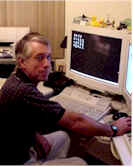
dloring3@cox.net
Telephone:760 489-9438
Address:1845 Cathedral Glen
Escondido, CA 92029
Dave Loring is a licensed agricultural
pest control advisor specializing in the use of biocontrols in landscape
maintenance. He has five years overseas experience, two years as an agronomist in
Cambodia working at the national vegetable seed station and three years as a Peace Corps
volunteer in Thailand with the Land Development Department. He received a Bachelors
in Soil Science from Cal Poly State University in San Luis Obispo, California in 1977.
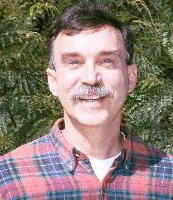
Back to Top
Board of Directors
Gary Colliver, Chairperson
Suzanne
Vaupel, Vice Chairperson
Wes Taborn,
Treasurer
David Loring,
Secretary
Kate Burroughs, Board Member

Gary works for the US National Park Service on the planning team at Yosemite National
Park. While working as a park ranger during the
1980's, he became concerned about the need to view Earth as one entity, not fragmented
into incompatible, competing areas called cities, farmlands, and parks, and the corollary
need for people to work together cooperatively to solve our interconnected environmental
and social problems. After receiving a Masters Degree in Interdisciplinary Studies/Human
Ecology at the University of California at Stanislaus in 1993, he spent two years working
as a Biological Planner for the Endangered Species Recovery Program, a coopertive
state/Federal endeavor in Fresno, California, before returing to the National Park Service
and his current position in 1997. His interest with the Dietrick Institute is in how
communities can work together to address the needs of farmers while decreasing
pesticide risks and exploring partnerships for the conservation of natural flora and
fauna. He is a member of the Agriculture Seminar of the Association for Baha'i Studies http://www.bahai-studies.ca/sigs/agnews.html
and enjoys vegetable gardening and hiking.
"The interests of farmers and conservation biologists are not that contradictory.
Mostly, communities need institutions dedicated to bringing people with diverse views
together to talk things out. The problems for farmers and for the environment are more
spiritual than material. In other words, we have the knowledge to build secure and
prosperous communities with farming as the cornerstone; what is needed is, through
collaborative partnerships, to create a broad understanding of what we know and the will
to put that knowledge into practice to solve problems>. The Dietrick Institute is a
positive model in creating access to knowledge and hopefully a forum for consultation
about how to best solve local pest problems cooperatively through ecologically based
strategies."
Back to Top
 In Memorium, died 2002 after a bout with cancer. We
will miss her.
In Memorium, died 2002 after a bout with cancer. We
will miss her.
Suzanne is an agricultural economist and attorney dedicated to the
promotion of sustainable and organic agriculture. She has done practical and influential
projects from writing manuals for organic certification to conducting surveys of
conditions of migrant farm workers. She was a founder of the Organic Suppliers Advisory
Group of the Organic Trade Association and provides legal advice and legislative advocacy
to organic farmers, farming organizations and industry associations. She is Vice President
of IFOAM , the International Federation of Organic Agriculture Movements http://www.ifoam.it/ , where she is working on helping
harmonize standards toward a worldwide standard for organic products.
"We have to communicate effectively what we believe about the quality of our food
supply and the quality of life for farmers and farm workers. When we encounter confused or
conflicting agendas, we can facilitate understanding of the values inherent in sustainable
and organic agriculture by simply meeting and talking through the issues. The trends favor
more farmers coming to ecologically based pest management. The knowledge and
strategies promoted by the Dietrick Institute are needed to help those who are
ready to make
the transition work."
Back to Top
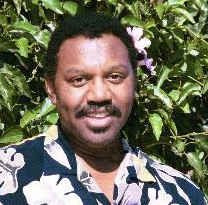 Wes
died unexpectedly earlier this year. Wes
died unexpectedly earlier this year.
Wes is an economist with a Master's in Business
Administration from
Pepperdine University. One of his first jobs was with a non-profit nature conservancy
organization and he has an avid interest in seeing conservation-oriented businesses grow
as people become more aware of the need. He has worked for the Internal Revenue Service
including helping farmers in bankruptcy meet tax obligations.
"The Dietrick Institute is an idea whose time is now. The vision of the organization
and the unique knowledge and understanding of the principals involved are enough to
convince people of the value of contributing to help it expand its influence. I hope to
attract donors to help fund internships and short courses with an international outreach
for people who want to become biological control technicians or field scouts. This website
must also be expanded with more detail about past projects. Details of biological control
successes help farmers and pest control advisors become observant and try on-farm
experiments. I enjoy being a supporter of such important work."
Back to Top
See David Loring,
Project Leader "Farmer Field Schools"
Kate is a Board Certified Entomologist, licensed Pest Control
Adviser, and Certified Crop Advisor providing ecological pest management solutions for
agriculture and landscape clients. Kate is also co-owner of Harmony Farm Supply and
Nursery located in Sebastopol, CA http://www.harmonyfarm.com
. She graduated with a B.S. in Entomology from U.C. Berkeley in 1975. She worked for
California Department of Food and Agriculture from 1975-1978 working on control and
eradication projects. She then started her own IPM consulting service working with apples
and wine grapes in the North Coast region of northern California. Kate has taught at Santa
Rosa Junior College and at numerous conferences on ecological pest management. She
is active in CCOF, the http://www.ccof.org .
"As a young college graduate I asked Everett Dietrick if I
could work for him in order to learn how to practice biological control. He told me
that I knew enough and would learn more by just doing it. He was right. Deke
has inspired many of us who have become leaders of the sustainable agriculture movement. I
am actively working with clients to create habitats for beneficial insects that encourage
natural biological control."
Back to Top
|
